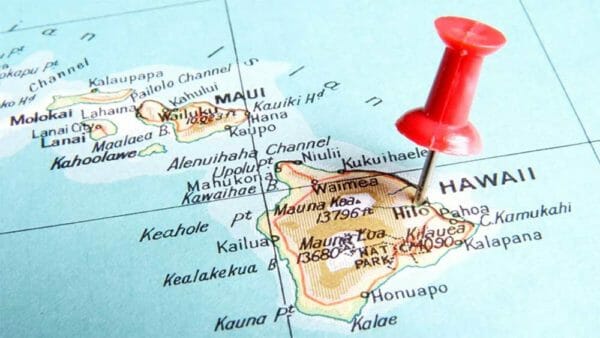
U.S.A. –-(AmmoLand.com)-– Hawaii has had the most restrictive policy of all states regarding the issuing permits to carry in public, either concealed or openly. In the last few decades, the number of permits issued has been in the single digits.
Hawaii has among the strictest gun laws in the nation. So strict, said attorney Alan Beck, that Hawaii essentially bans carrying guns outside the home. It has been practically impossible to get a permit to carry a loaded gun in public, he said. In the past 22 years, there have been four permits issued in Hawaii, said Beck, who represents various residents challenging Hawaii gun laws.
The United States Supreme Court specifically mentioned Hawaii as violating the Second Amendment in the USR&PA v. Bruen decision. It was clear that Hawaii’s law allowing police to arbitrarily deny permits to carry is unconstitutional.
Hawaii’s Attorney General has issued a formal legal opinion, in the form of a letter, clarifying the response to the Bruen decision by Holly T. Shikada, the Attorney General of Hawaii.
We advise that as to applications for concealed carry licenses, the chiefs of police should no longer require that an applicant “[i]n an exceptional case . . show[] reason to fear injury to the applicant’s person or property” in order to obtain a concealed carry license. HRS§ 134-9(a). The chiefs of police should continue to enforce all other statutory requirements for obtaining a concealed carry license, except for the citizenship requirement as applied to lawful permanent residents and U.S. nationals.
Thus, the Hawaii AG interprets Bruen as narrowly as possible. She specifically states that Bruen does not apply to open carry, characterized as “unconcealed carry licenses”:
Furthermore, we advise that as to unconcealed carry licenses, the chiefs of police should continue to enforce all requirements for an unconcealed carry license that were applicable before Bruen (this excludes the citizenship requirement as applied to lawful permanent residents and U.S. nationals). An applicant must still, among other things, “sufficiently indicate[]” an “urgency” or “need” to carry a firearm, and that the applicant is “engaged in the protection of life and property.” HRS§ 134-9(a).
The Hawaii AG openly states the State will restrict the right to keep and bear arms as much as the Supreme Court (and essentially the federal government’s power) will allow. The other constraint on the State of Hawaii is how much power the voters of the State will allow the government to grab.
Analysis and Speculation:
The Supreme Court, in the aftermath of the Bruen decision, remanded Young v. Hawaii back to the Ninth Circuit, ordering the Ninth Circuit Court of Appeals to reconsider the case under the guidelines the Supreme Court laid out in Bruen.
A fresh consideration of the case will require the interested parties to submit fresh briefs in the case. The Hawaii AG has foreshadowed the approach the State of Hawaii is likely to take.
The Ninth Circuit has shown a remarkable hostility to the Second Amendment in cases over the last decade. That hostility has been tempered by President Trump’s replacement of some of the Justices in the Ninth Circuit. The Bruen decision vindicated those Justices.
This correspondent believes the Ninth will allow the strict restrictions on open carry in public spaces in Hawaii to stand, claiming they are equivalent to the restrictions on concealed carry which existed in some states after the ratification of the Second Amendment. It is plausible George K. Young will be granted a permit to carry concealed, and the State will argue the case is now moot.
Many other restrictions are in the court’s docket to be re-considered in light of the Bruen decision.
It is difficult to see how bans on magazine capacity, semi-automatic firearms, or ammunition can stand under the guidelines issued by Bruen.
About Dean Weingarten:
Dean Weingarten has been a peace officer a military officer, was on the University of Wisconsin Pistol Team for four years, and was first certified to teach firearms safety in 1973. He taught the Arizona concealed carry course for fifteen years until the goal of Constitutional Carry was attained. He has meteorology and mining engineering degrees and retired from the Department of Defense after a 30-year career in Army Research, Development, Testing, and Evaluation.

from https://ift.tt/vD6jBZJ
via IFTTT

No comments:
Post a Comment